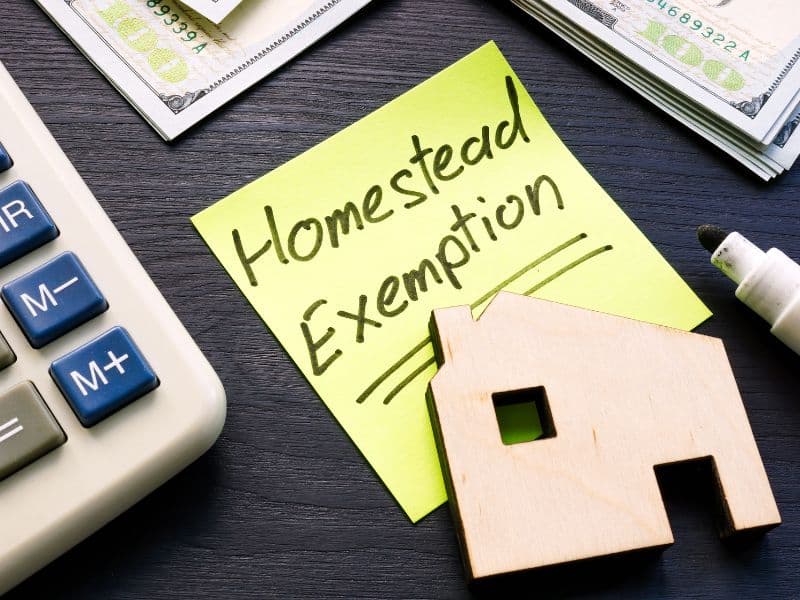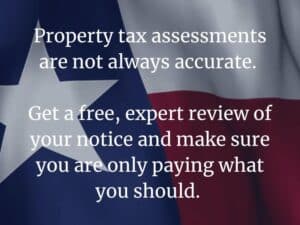Property taxes are a major concern for Texas homeowners, especially as real estate values climb across the state. Without limits, fast-growing market values could easily push annual tax bills beyond reach. Fortunately, Texas law provides important protection through the Homestead Cap, a safeguard that limits how much your assessed value can increase each year.
This article explains how the homestead cap works, who qualifies for it, and why verifying your cap each year is critical to keeping your property taxes under control.
What Is the Homestead Cap in Texas?
The homestead cap is a legal protection that limits how much your home’s assessed value can increase year over year. Specifically, it prevents your taxable value from rising more than 10 percent annually, plus the value of any new improvements made to the property.
For example, if your assessed value last year was three hundred thousand dollars and the market value this year increased to three hundred sixty thousand dollars, the capped assessed value would only rise to three hundred thirty thousand dollars. Your taxes would be calculated based on the lower amount, not the higher market value.
It is important to remember that:
- Market Value is what your home could sell for in the open market today
- Assessed Value is what your property taxes are based on, after applying the cap
Without this protection, many Texas homeowners could face unpredictable and unaffordable tax hikes, especially in fast-appreciating areas like Dallas-Fort Worth or Austin.
Who Qualifies for the Homestead Cap?
To benefit from the homestead cap, you must have a valid Residence Homestead Exemption on file with your county appraisal district. This exemption is only available for your primary residence and does not apply to rental properties, vacation homes, or investment properties.
Basic eligibility includes:
- You must own and occupy the home as your primary residence as of January 1
- You must apply for and receive approval for the Residence Homestead Exemption
- Once granted, the 10 percent cap automatically applies starting the following year
Homeowners who also qualify for additional exemptions, such as the Over 65 Exemption or the Disabled Person Exemption, can receive even greater tax relief alongside the capped value.
How the Cap Protects Against Market Surges
In Texas real estate markets, it is not unusual to see property values rise sharply in just a few years. Without the homestead cap, taxable values could follow the market with no limits, leading to soaring tax bills.
The homestead cap slows this process significantly. Even if your market value rises by twenty percent, your assessed value will only rise by ten percent, protecting your ability to budget for and manage your annual tax obligation.
Consider this simplified example:
| Year | Market Value | Assessed Value with Cap | Estimated Tax Savings |
|---|---|---|---|
| 2022 | $275,000 | $275,000 | — |
| 2023 | $315,000 | $302,500 | Approximately $315 saved |
| 2024 | $370,000 | $332,750 | Approximately $475 saved |
Note: This example assumes a two and a half percent tax rate for illustration purposes.
Over time, the homestead cap can save homeowners thousands of dollars by controlling how fast the taxable value grows, even as the real estate market surges around them.
How to Verify If Your Cap Is Active
It is important not to assume the homestead cap is automatically applied. You should review your annual Notice of Appraised Value to verify.
Look for indicators like:
- “Assessed Value” or “Capped Value” listed separately from Market Value
- A comparison between last year’s assessed value and the new assessed value
- An increase in assessed value that is no more than ten percent
If you notice your assessed value jumped by more than ten percent without explanation, it is a sign something may be wrong. Missing or improperly applied exemptions can cause this issue.
In that case, contact your county appraisal district immediately to verify your homestead status and correct any errors before your tax bill is finalized.
Conclusion
The homestead cap is one of the most valuable protections Texas homeowners have against runaway property tax increases. By limiting how fast your taxable value can rise, it provides predictability and security, even during years when the housing market climbs rapidly.
However, the homestead cap only works if your exemption is properly filed and active. Taking time to check your appraisal notice each year, verifying your exemptions, and acting early if there are mistakes can protect your finances for years to come.
If you need help reviewing your exemption status, verifying your cap, or preparing for your next protest season, we are here to assist. Our team helps homeowners secure the exemptions they deserve and ensure that their taxes reflect the true condition and value of their homes.






